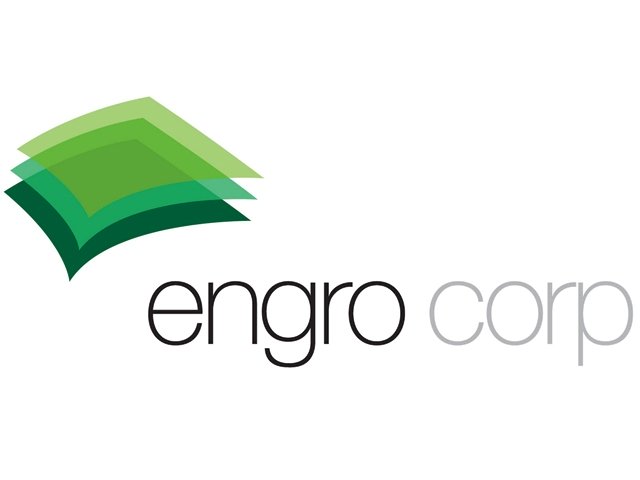
Engro Corp – the biggest conglomerate in Pakistan – has posted a record consolidated profit after tax of Rs8.18 billion for the year ending on December 31, 2013, up 529% compared to a depressed profit after tax of Rs1.3 billion in 2012.
Earnings per share (EPS) of the company jumped to Rs16.01 for the year ended December 31, 2013 compared to an EPS of Rs2.61 in 2012.
The company revenue jumped sharply to Rs155.4 billion in 2013 against Rs125.2 billion in 2012. The record profitability was achieved by a turnaround in its fertiliser business coupled with an impressive performance by Engro Polymer, a healthy contribution by Engro Vopak and EXIMP’s return to profitability.
Engro Fertilizer
During 2013, the company made a profit after tax of Rs5.49 billion compared to a loss of Rs2.93 billion last year. Engro Fertilizer’s revenue for the year was Rs50.12 billion compared to Rs30.62 billion in 2012.
Sales of the company’s blended fertilisers (Zarkhez and Engro NP) for the year increased by 21% to 95,000 tons compared to 80,000 during 2012. Pakistan’s overall potash market remained stable at 20,000 tons (nutrient basis) during 2013. The company undertook an Initial Public Offering (IPO) of 75 million ordinary shares in fourth quarter of 2013 (4QCY13).
Engro Foods
2013 was a test of the company’s resilience due to external challenges, coupled with distribution issues, which impacted its volumes and profitability. Engro Foods’ revenues declined from Rs40.16 billion in 2012 to Rs37.89 billion in 2013, while net profits decreased from Rs2.59 billion in 2012 to Rs1.09 billion in 2013.
Engro EXIMP
EXIMP’s revenues during 2013 were Rs32.85 billion compared to a revenue of Rs20.97 billion in 2012. The company’s consolidated profit after tax stood at Rs59 million in 2013 as compared to a loss of Rs426 million in 2012. The profitability of fertiliser and commodity trade was off-set by losses in the rice business despite improvement in operational parameters.
Engro Powergen
Engro Powergen Qadirpur earned a net profit of Rs1.45 billion during 2013 compared with Rs2.1 billion in year 2012.
During the year 2013, the Qadirpur Plant demonstrated billable availability of 83.1%. It dispatched a total Net Electrical Output of 1,334 Gigawatt hours to the national grid with a load factor of 71.7% as compared to 93.8% in 2012. Overdues from Pakistan Electric Power Company stood at Rs1.248 billion as on December 31, 2013, against overdues of Rs5.787 billion as on December 31, 2012. Overdue amount payable to Sui Norther Gas Pipeline Company on December 31, 2013 was Rs386 million compared to Rs2.68 billion in 2012.
Polymer and Chemicals
During 2013, the company posted a profit of Rs707 million compared to Rs77 million in 2012. Revenue increased from Rs20.60 billion in 2012 million to Rs24.78 billion in 2013. The company achieved its highest ever production of vinyl chloride and caustic soda during the year.
Vopak
During the year, the company modified its ACN tanks which were unused since 2010 and brought these under use for storage of EDC for Engro Polymer. Actual throughput for the year was 1,135 KT compared to 1,101 KT in 2012.
The company’s revenue was Rs2.05 billion in 2013 as compared to Rs2.37 billion in 2012. The profit after tax for 2013 was Rs1.21 billion compared to Rs1.48 billion in 2012.
LNG
Elengy Terminal Pakistan Limited (EPTL), a subsidiary of Engro Corporation Limited, won the government’s tender for Fast Track LNG in November 2013 and is poised to sign the contract this month.
Published in The Express Tribune, February 15th, 2014.
Like Business on Facebook, follow @TribuneBiz on Twitter to stay informed and join in the conversation.
COMMENTS (2)
Comments are moderated and generally will be posted if they are on-topic and not abusive.
For more information, please see our Comments FAQ

1725612926-0/Tribune-Pic-(8)1725612926-0-165x106.webp)















And to celebrate, most of the Marketing team are off to a grand party in Greece! The millions spent here would be better used in CSR activities, or even to make up for the poor shareholders who waited for a dividend from the company for over 2 years!
Engro Foods is a perfect example of failed marketing and distribution policies